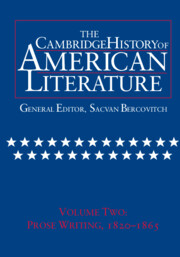2 - The Frontier and American Indians
from THE LITERATURE OF EXPANSION AND RACE
Published online by Cambridge University Press: 28 March 2008
Summary
In 1879, Hinmaton Yalakit (Thunder Rolling in the Heights), a Nez Perce leader known to whites as Chief Joseph, delivered an oration in Washington, D.C. His words summed up an escalating history of betrayals by settlers and government officials:
The earth is the mother of all people, and all people should have equal rights upon it. You may as well expect the rivers to run backward as that any man who was born a free man should be contented when penned up and denied liberty to go where he pleases. If you tie a horse to a stake, do you expect that he will grow fat? If you pen an Indian up on a small spot of earth, and compel him to stay there, he will not be contented, nor will he grow and prosper. I have asked some of the great white chiefs where they get their authority to say to the Indian that he shall stay in one place, while he sees the white men going where they please. They cannot tell me. … Whenever the white man treats an Indian as they treat each other, then we will have no more wars. … Then the Great Spirit Chief who rules above will smile upon this land, and send rain to wash out the bloody spots made by brothers' hands across the face of the earth. For this time the Indian race are waiting and praying.
American Indians would wait in vain. Chief Joseph's oration, one of many such protests, which form a powerful genre of resistance literature, looked both backward and forward from the historical midpoint in the long process of Indian Removal and the destruction of tribal integrity that was a consequence of the Euro-American conquest of the West.
- Type
- Chapter
- Information
- The Cambridge History of American Literature , pp. 175 - 238Publisher: Cambridge University PressPrint publication year: 1995



